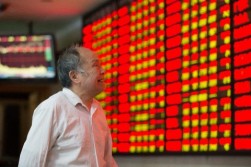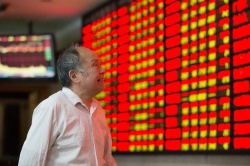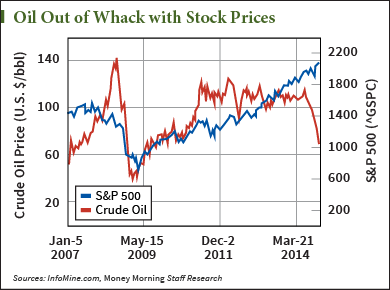Starting from Wednesday, the SHCOMP—the stock index of Shanghai—was -0.48% , which is now up 24% since August 26 but down 30% since the June 12 peak, which highlights the extreme fluctuations that the world’s giant in stock exchanges has passed through in recent months.
Michael Batnick, a seasoned theresearch director at Ritholtz Wealth Management, was one of those that sent in a tweet confirming this issue , just last month.
For the current year, China’s benchmark is up 13%.
According to expert definition, a bullish market is defined as when there is an Index growth of 20% fron the most recent lowest region while a bear market occur when there is a downward trend of about 20% from the latest highest peak.
According to the definition, a bull market territory starts when the index grows 20% from its most recent low, while a bear market occurs when the index is down 20% from the latest peak.
The stock market of China was struck by a Bullish trend recently amidst economic data that indicated that China was struggling. The already battered world economy is now a major source of worry for the FRI that has decided to shift an increase in interest rates. Experts analysts on the other hand believe China is moving on the upward trend once again.
- Carnes, of Eos Funds, believes that the economy of China will get stronger during the next year and new highs will be reached in stocks in the next 12 months.
The data shows that Chinese October retail sales rose at their fastest pace of the year, jumping 11% consecutively, which sparks optimism that vigorous consumption could help to calm the stoppage in China’s economy.
- Ahern, CIO at KraneShares, said that China’s declining numbers in manufacturing serve as a representation of its overall economy. However, investors’ going astray is due to the belief that China leads a single faced economy. China’s internet sector has experienced a low correlation to other sectors in the economy of China. Ahern adds that there is an expectation for the services sector to continue to overtake in the future.
Last week the Chinese government admitted that a moderate growth is being maintained and this will be sustained in the next few years as gross domestic products will remain steady at 6.5% annual growth- this will eventually help the country meet up with its economic growth plan.
The Chinese stock market was on the downturn recently due to the rise of the Dollar- a condition that did not only affected the Chinese market but the markets in emerging markets in general, including South Africa, Brazil, and Russia. The falling prices of minerals such as oil, and copper did not helped emerging markets as prices of such commodities continued to fall, causing a massive devaluation of the countries’ currencies.
It seems the Chinese Yuan is picking up again and things are beginning to normalize, however, this is just a temporary reprieve especially with the US economy getting stronger, more jobs are being created and the Dollar is getting stronger than ever. The current terrorist attacks in Europe, including Russia may also affect the value of the Yuan currency and other emerging currencies worldwide.






